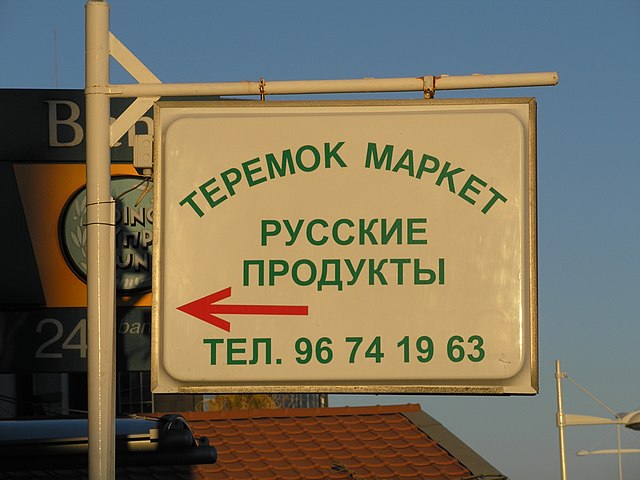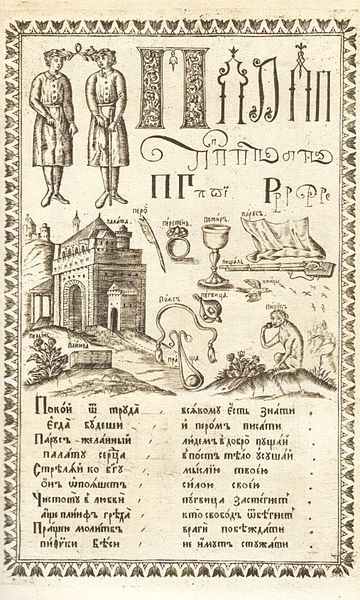Geographical distribution of Russian speakers
This article details the geographical distribution of Russian-speakers. After the dissolution of the Soviet Union in 1991, the status of the Russian language often became a matter of controversy. Some Post-Soviet states adopted policies of derussification aimed at reversing former trends of Russification, while Belarus under Alexander Lukashenko and the Russian Federation under Vladimir Putin reintroduced Russification policies in the 1990s and 2000s, respectively.
Russian minimarket in Limassol, Cyprus; translation: "Teremok market. Russian products. Phone number: 96 74 19 63"
Russian is an East Slavic language, spoken primarily in Russia. It is the native language of the Russians and belongs to the Indo-European language family. It is one of four living East Slavic languages, and is also a part of the larger Balto-Slavic languages. It was the de facto and de jure official language of the former Soviet Union. Russian has remained an official language in independent Russia, Belarus, Kazakhstan, Kyrgyzstan, and Tajikistan, and is still commonly used as a lingua franca in Ukraine, Moldova, the Caucasus, Central Asia, and to a lesser extent in the Baltic states and Israel.
This page from an "ABC" book printed in Moscow in 1694 shows the letter П.
The Ostromir Gospels of 1056 is the second oldest East Slavic book known, one of many medieval illuminated manuscripts preserved in the Russian National Library.



